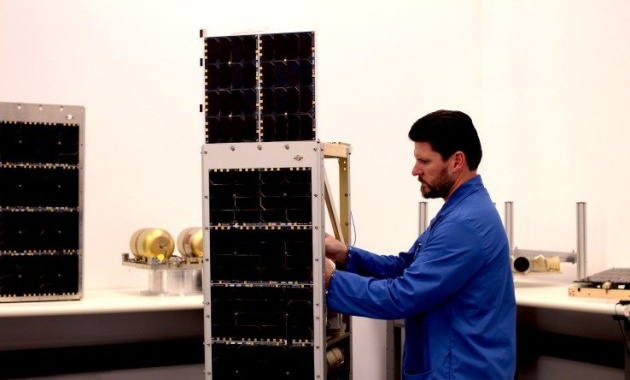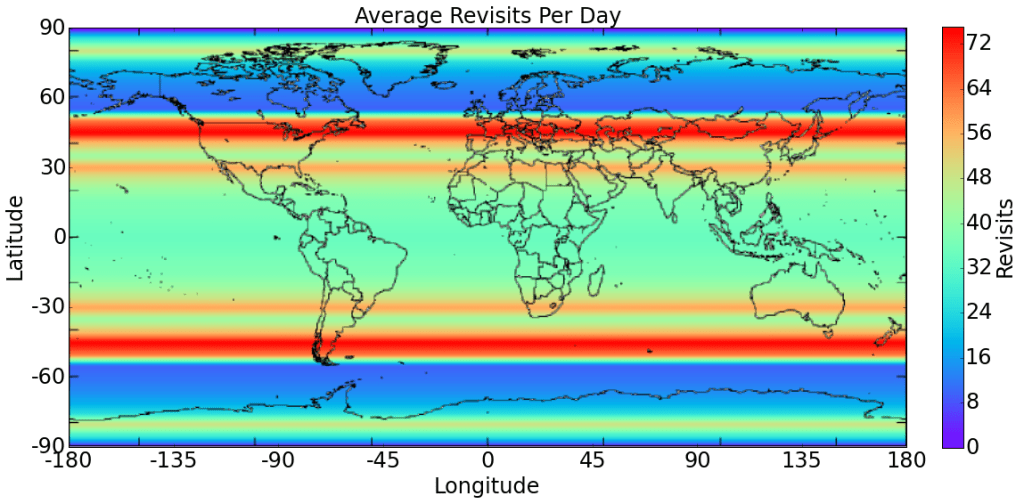
We’re all familiar with the kind of satellite imagery on Google Maps and similar services at this point. Those images, however, are only updated every few months. BlackSky Global, a “satellite-imaging-as-a-service” startup based in Seattle, wants to launch a fleet of 60 satellites to provide its customers with a near real-time view wide swaths of the planet and sell those images for about a tenth of its competitors.
BlackSky Global’s parent company Spaceflight Industries has raised a total of $28.5 million from the likes of Paul Allen’s Vulcan Capital, RRE Venture Capital and Razor’s Edge Ventures. A portion of this funding will go to BlackSky, and the company says it currently has enough funding to put six spacecraft into space by the end of 2016.
As you can see from the map below, the company plans to ensure that its satellites will pass over major cities and economic zones about 40 to 70 times per day, so if you need an image, it’ll only take a couple of hours before BlackSky can give it to you. That’s not quite the real-time view of the planet you sometimes see in science fiction crime dramas on TV, but this will allow the company’s customers to monitor their infrastructure (and maybe even crops) in near real-time. The service also promises to be able to offer video at one frame per second.

The company is working on a web-based platform that will allow its customers to request these images online.
BlackSky expects that its services will be attractive to customers in a wide range of industries, including from agriculture, forestry, defense, engineering and engineering businesses, and government customers.
“The launch of BlackSky Global marks a major leap forward in opening up access to images from space and enabling constant global awareness,” said Peter Wegner, BlackSky Global’s chief technology officer and former director of the U.S. Air Force Operationally Responsive Space Office. “By operating the infrastructure to view our planet in near real-time, we envision an open future where enhanced Earth observation leads to positive change and a better understanding of our world.”



